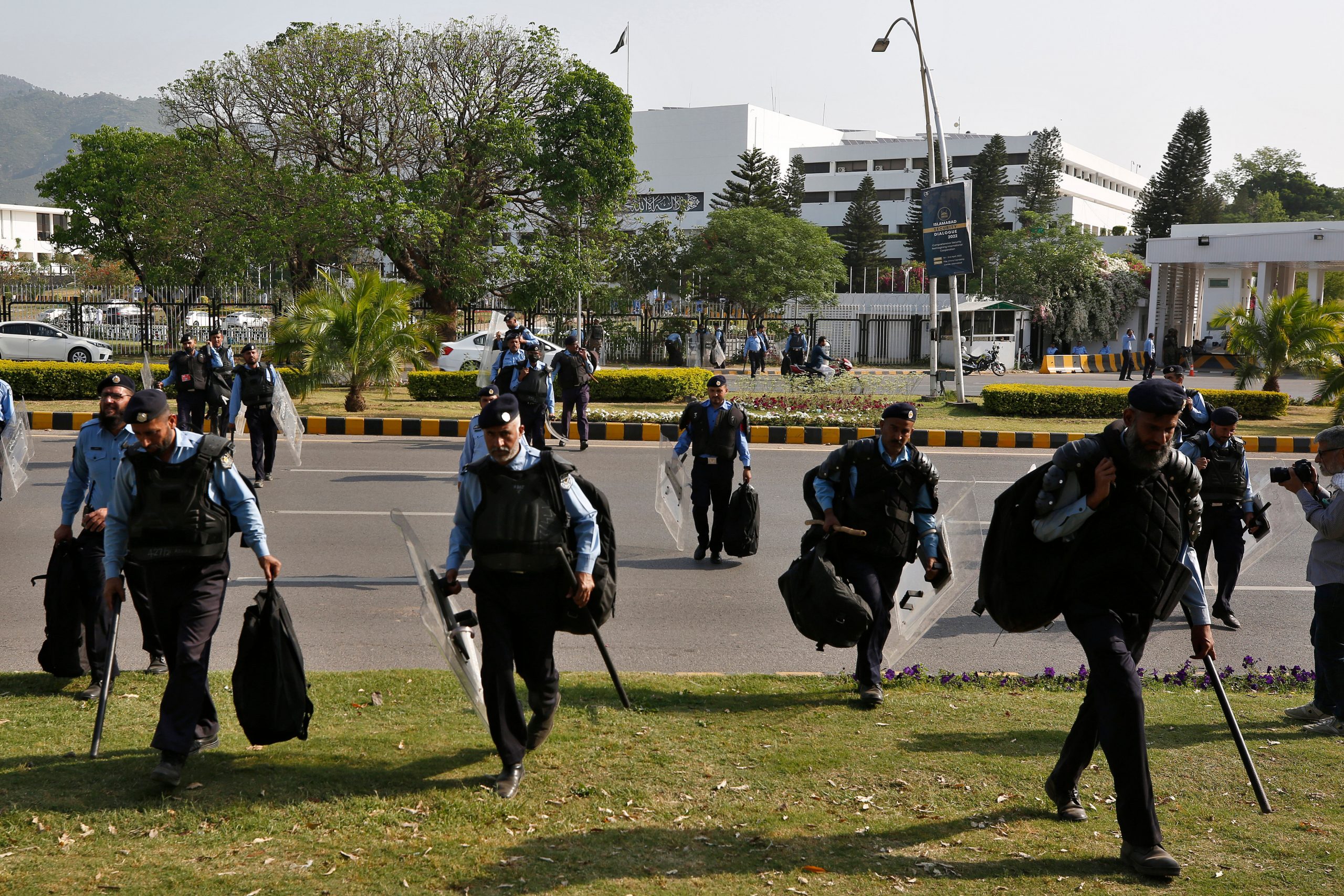Pakistan, torn out
of India in 1947, has not had the most stable political system since its
formation. A constitutional democracy wed to the Islamic cause, the country has
seen elected governments flounder many a times and the military taking an
overarching role. Accusations of being a safe harbour for global terrorism of
the Islamic persuasion has consistently been a scar on this nation of 220
million people. Now, with Pakistan Prime Minister Imran Khan on the brink of an
ouster, Pakistan awaits another battle with chaos.
Imran Khan, the
man at the centre of the current crisis, once the heart-throb of this
cricket-crazed nation, had made tall promises when his party, the Pakistan
Tehreek-e-Insaaf had come to power in 2018. At the core of Khan’s governance
was the idea of Islamic democracy focussed on welfare and tolerance. But the
regime has had to battle numerous complaints, particularly with regard to Khan’s
handling of the economy.
Enter The Dragon
Political
observers have often viewed Imran Khan as hostile to the United States. His
governance roadmap brought him closer to China. The second-largest economy in
the world has been of immense financial support to Pakistan at the time when
the country was knee-deep in debt.

However, proximity
with China has consistently invoked claims that Pakistan was inching closer to
a debt trap.
Also Read | What is China’s debt-trap diplomacy: Communist ploy or West’s lie?
The Chinese debt-trap is defined by economists ideologically
allied to the West as China’s way of giving out big loans to small nations in
order to keep them in debt and ultimately take over its infrastructure. China
has found it easy to work with Imran Khan, particularly for his position on the
United States.
Khan, on his part,
has consistently been appreciative of China’s role in the world. In fact, the
former cricketer battled heavy criticism when he refused to condemn China for
allegations of human rights abuse against the Uyghur Muslims in Xinjiang. Khan
had said Xinjiang is not what the Western media portrays.
Also Read | Pakistan cricket hero on a sticky wicket
China, on its
part, has repaid in kind. Experts linked to the Chinese state have often come
out in support of Imran Khan. However, its also true that economic interests
will trump any other goodwill for the Communist nation. If Imran Khan is
replaced by Shehbaz Sharif, as is expected, China may still find Pakistan a
friend, willing to build further on the China-Pakistan Economic Corridor
(CPEC).
What China will
hope to avoid is instability and a cross between the military and civilian
administrations, all of which have the possibility to delay Chinese
infrastructure projects, which Beijing would look to avoid.
The Indian
question
While Imran Khan
has been critical of Indian Prime Minister Narendra Modi for his government’s
treatment of Indian Muslims, Khan has maintained his appreciation for the
Indian establishment and the way it works. On the eve of his no-trust vote,
Khan said that no superpower could dictate terms to India, ruing over his
accusation that his ouster is part of a “foreign conspiracy” spearheaded by the
United States.

India and Pakistan
have fought three wars since they broke apart. The Kashmir question continues
to be one of the core political troubles affecting South Asia. While a return of
a Sharif to power may mean a better India-Pakistan relationship since the
Sharifs have often been behind several dovish gestures, how the Pakistan
military behaves remains a question, especially since there is just one year to
go for fresh polls in Pakistan at most. An election may well be declared
sooner, as Imran Khan had decided.
The Afghan
tangle
Afghanistan and
Pakistan would at one point work in tandem. But the Taliban regime now in
control is not in the best of terms with Pakistan’s military establishment. Pakistan
has been pushing Afghanistan to take more stringent action against extremist
groups within its territory, but Imran Khan has been less critical of the
Taliban than most other foreign leaders, possibly because of his own perception
of the United States as an intervening force.
Also Read | The swift rise and steep fall of Pakistan Tehreek-e-Insaaf
A situation in
which the Pakistan military, led by General Bajwa, takes greater control of the
country’s politics, may mean an escalation of tensions with Afghanistan, which
is already battling a severe humanitarian crisis following the withdrawal of US
troops from its territory.
The American
position
While Imran Khan
has consistently accused the United States of attempting to affect a regime change
in Pakistan, the US has denied the allegation. Political observers based out of
the United States think Pakistan is not a priority for the US at the moment
amid the Russia-Ukraine crisis. “We have many other fish to fry,” said Robin
Raphel, attached to the Center for Strategic and International Studies.

The US’ political
establishment believes that since it’s the Pakistan military that effectively
calls the shots on questions of foreign policy and aid, a change in civilian
administration would not have a direct impact on its relationship with
Pakistan. However, many in the US do see Imran Khan’s meeting with Russian
President Vladimir Putin on the day he launched an attack on Ukraine as a
threatening gesture unhealthy for US-Pakistan relations.







